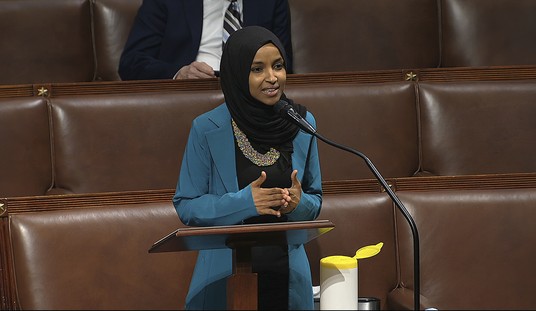With best wishes for a Happy New Year! I’m going to kick this one off on a personal note. I’m now on the mend, but spent the holidays knocked out by one of those bugs that drag on and on — nothing life threatening, but enough of a bother to focus my thoughts on what lies ahead for “health care.” I have dim memories of early childhood days, before “health care” and its attendant insurance became a prime obsession of the federal government. I swear I can dimly remember a time when going to see the doctor was pretty straightforward. If you got sick enough, you went. If you felt really awful the doctor even made house calls. Maybe the doctor even knew your name.
These days, even with much of ObamaCare yet to unfold (so we can find out what’s in it), to get sick is to enter a bureaucratic labyrinth in which your only real guide is whatever you can Google on the Internet (which the FCC now proposes to regulate on our behalf). I’m not talking here about life-threatening illness, fraught with deep and costly complexities — which is en route to a regulatory nightmare of its own. I’m talking about the simple stuff — the kind of bug where one day you’re feeling fine, the next day you’ve come down with something that leaves you living on toast and drugstore medication. When it’s still going on a week later, you decide it’s time to see a doctor and find out if he can prescribe a cure.
But to see a doctor, especially if you get sick outside the immediate range of your “primary care physician,” is no simple matter. Doctors aren’t just busy these days with taking care of patients. They are staggering under colossal loads of regulation, potential liability, and the ever more urgent priority of deciphering and complying with the government edicts, codes, demands, incentives and behavioral tweaks and stomps which are supposed to produce medical efficiency and justice for all.
I guess the really smart patients must be constantly booking a month or two ahead for any and all contingencies. But the rest of us, unable to foretell the exact date on which we will fall suddenly sick enough to want a doctor, make no such provisions. The fallbacks are to go to an emergency room — where you can wait for hours, tie up facilities intended for cases more desperate, and walk out with a four-figure bill, and then, even if you have a health plan which picks up part of the giant tab, you can spend months fielding a blizzard of unpredictable, inexplicable and randomly arriving bills for “co-pays.” Or you can go to one of those same-day-appointment clinics, where you can wait for a couple of hours until a nurse practitioner shoves a stack of prescriptions into your hand with the explanation that they don’t know what you’ve got, and there’s no telling when the lab tests might come back — but here’s an assortment of prescription drugs you can chug down as a cocktail on the chance that one of them might do the trick. If you feel worse, or the drugs themselves make you sick, you are advised to… see your doctor (but if you could do that, would you be at this clinic in the first place?), or go to an emergency room. If you try to call back, to check on test results perhaps, you discover that while the clinic has a direct line to its local billing department, and another direct line to its nationally centralized call center (Located in Florida? In Bangalore? In Manila? Who knows?), there is no way to actually place a direct call to the medical staff at the local clinic you’ve just been to. Short of physically going back over there, your only option is to put in a request that they call you, and then wait, and wait, and wait, until maybe they do.
OK… it could all be far worse. And with time and more federal intervention, it surely will be. But in the thick of this, late last month, while I lay pondering, among other things, the giant leap in our health insurance bill that followed the passage of Obamacare, I did have a small epiphany. It was this: In the matter of getting medical care, I used to have some general idea of how it worked. I have no idea anymore what really lies ahead. I have no idea how it is going to work. I do have a “primary care” physician right now who’s terrific, when I can get to him. But medical care has become such a political battleground that predicting its future feels like predicting the fate of Poland on the verge of World War II. Like the legislators who passed it, and the president who signed it, I have not read the entire 2000-or-so-page “Affordable Care Act.” Nor do I want to. The general mess is obvious, and I am not at all confident that reading it would do much to enlighten me about the exact effects on my life, or how to prepare for them. America’s economy is a vast, complicated, dynamic thing, and central planning ever more tightly imposed on the one-sixth of it that is the medical sector is bound to produce colossal waste and absurdities. But how exactly will that translate into what happens when you, the individual, get sick in the year 2016, or 2020? All I know for sure is, thinking about it makes me queasy all over again.
The new year brings the new Congress. But I have no idea right now if that means that some, or all, or none of this plan will be repealed. I have no idea if ten years from now my current doctor will be allowed to keep the patients he’s now got (even if he wants to), or if I will be able to choose which doctor I see (which I do want to), or who will decide who will or must pay what to whom, whether for insurance, or for actual medical services, or for professional advice or bureaucratic diktats on how to navigate the two. I have no idea if the good, attentive care that bought my father four precious years of life in his fight with terminal cancer will still be available, or if we will be living in the world of British health care — where my husband’s mother thought she had cancer, but was left to wait so many months for a scan that she died of that cancer before her appointment came due. I simply have no idea.
Nor do I know what to expect on taxes — except that someone is going to have to pay off the titanic debts run up in our name by Washington. Like other Americans who work for a living, I was left guessing until well into December what my income tax rate would be when the new year dawned. I have no idea if we are heading for a system in which it will become financially pointless to put in the extra effort to earn a bit more income. I have no idea whether I will ever get back any of the money that over the years the government has required me to pay into Social Security and Medicare — though once upon a time the rationale for all that was that the government would do a better job than I could of keeping that money safe for my old age. Nor do I know if the government will refrain from a grab for private retirement savings accounts, which not so long ago seemed a safe fallback if Social Security went bust. With our government’s insatiable appetite for money, and the Fed’s apparent willingness to keep creating it, I don’t know whether the dollar is still a safe currency. I can learn a lot on the internet, but with government regulators closing in on that, I no longer have even a ballpark sense of how much that internet access might ultimately cost, or how open and easy a medium it will remain. For that matter, I don’t know if some years down the road there will be a de facto “carbon” tax on the air I breathe, or a United Nations-spawned U.S.-adopted gag on what was once my American right to free speech. Nor — lest we forget — do I have any idea whether to expect that my next trip to the airport will be a perfectly reasonable experience, or a humiliating grope from which I may not legally retreat once it has begun.
In sum, if my uncertainties are in any way typical — and I think many of them are — then in one area after another that has an enormous effect on how we live, work, communicate and plan our futures, a lot of working Americans are living with a staggering degree of uncertainty right now. This is not the exhilarating uncertainty of entrepreneurship, of exploring new frontiers, or taking calculated risks in hope of rewards. It is uncertainty of a very unpleasant and debilitating kind — in which you’re never quite sure what might be taken from you next. This is not due solely to the vagaries of the individual human condition, or the ructions of a restless world. Larded on top of that right now are the uncertainties created by our own government — which increasingly demands that we, the people, trust that the ever more labyrinthine and severe strictures and demands imposed on us from above are all for our collective good, and if we just have faith, it will all sort itself out to salubrious effect in the end.
All this ignores or denigrates the real leap of faith that made America great: Faith in the idea that Americans, left individually free to choose and held responsible for their choices, will work wonders both for themselves and — thanks to the marketplace — for others, in ways that no amount of government planning ever could. In Washington, even the most freedom-loving members of the new Congress will soon be hearing siren calls to abandon that trust. My own act of faith right now is to believe it is among those who manage to resist that Americans will be looking for their next true leader.









Join the conversation as a VIP Member